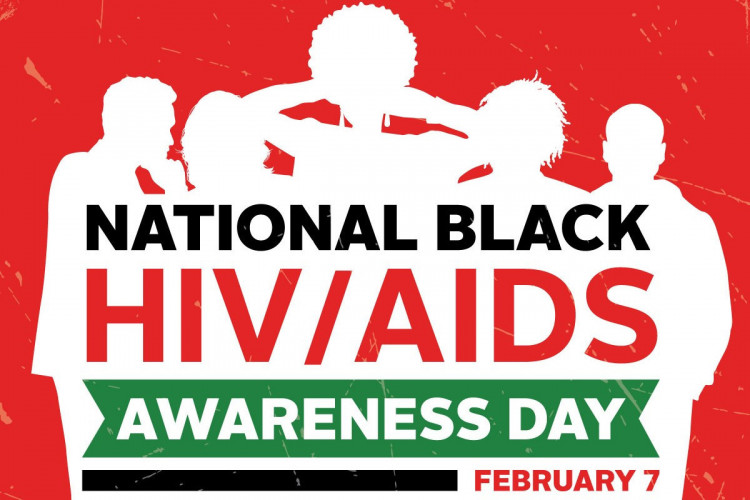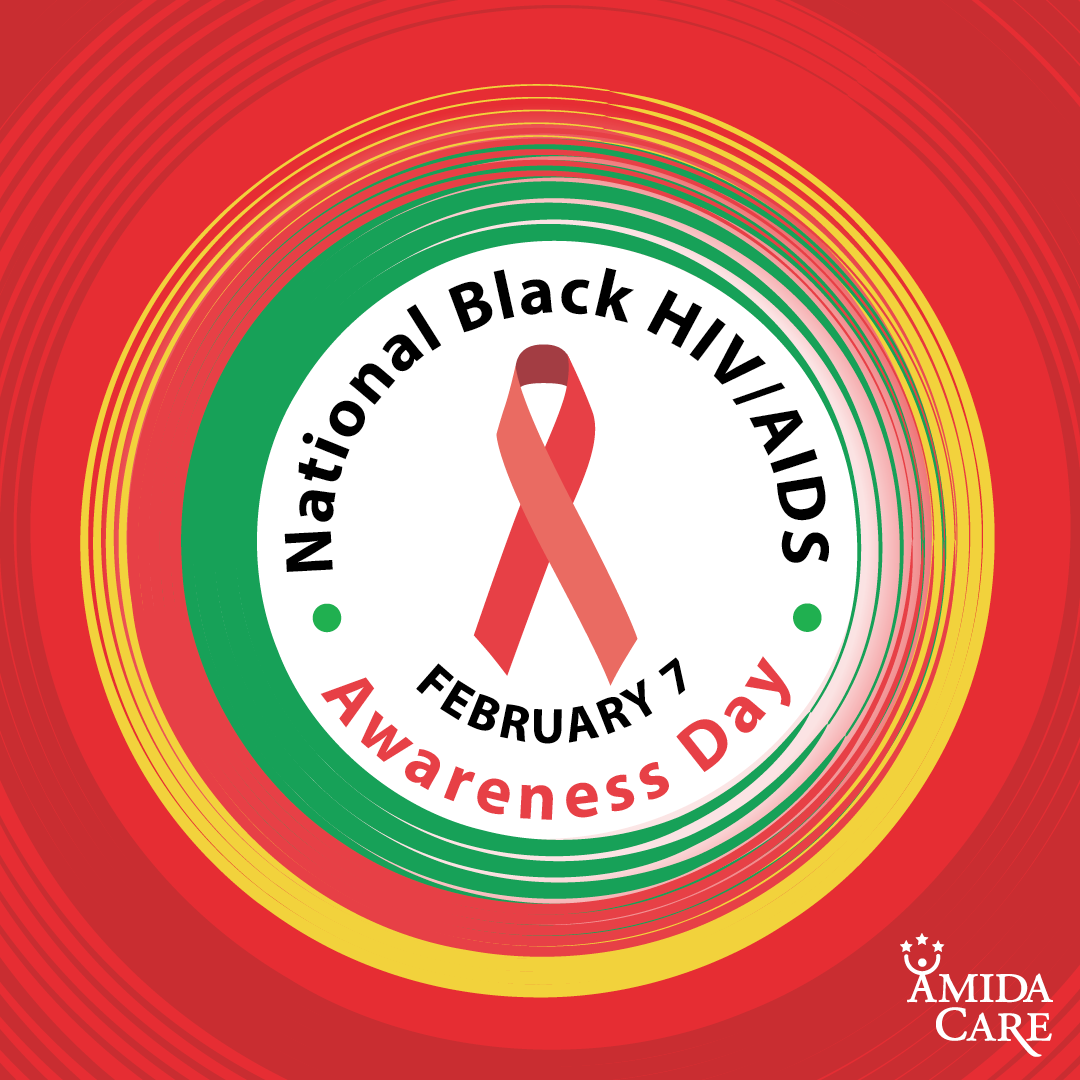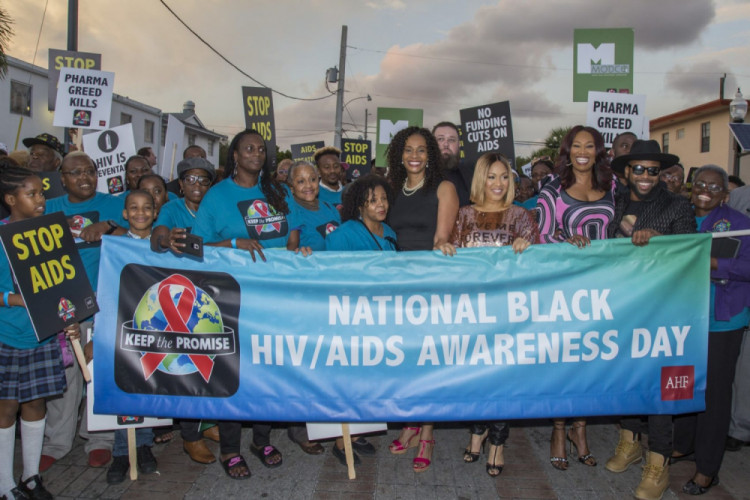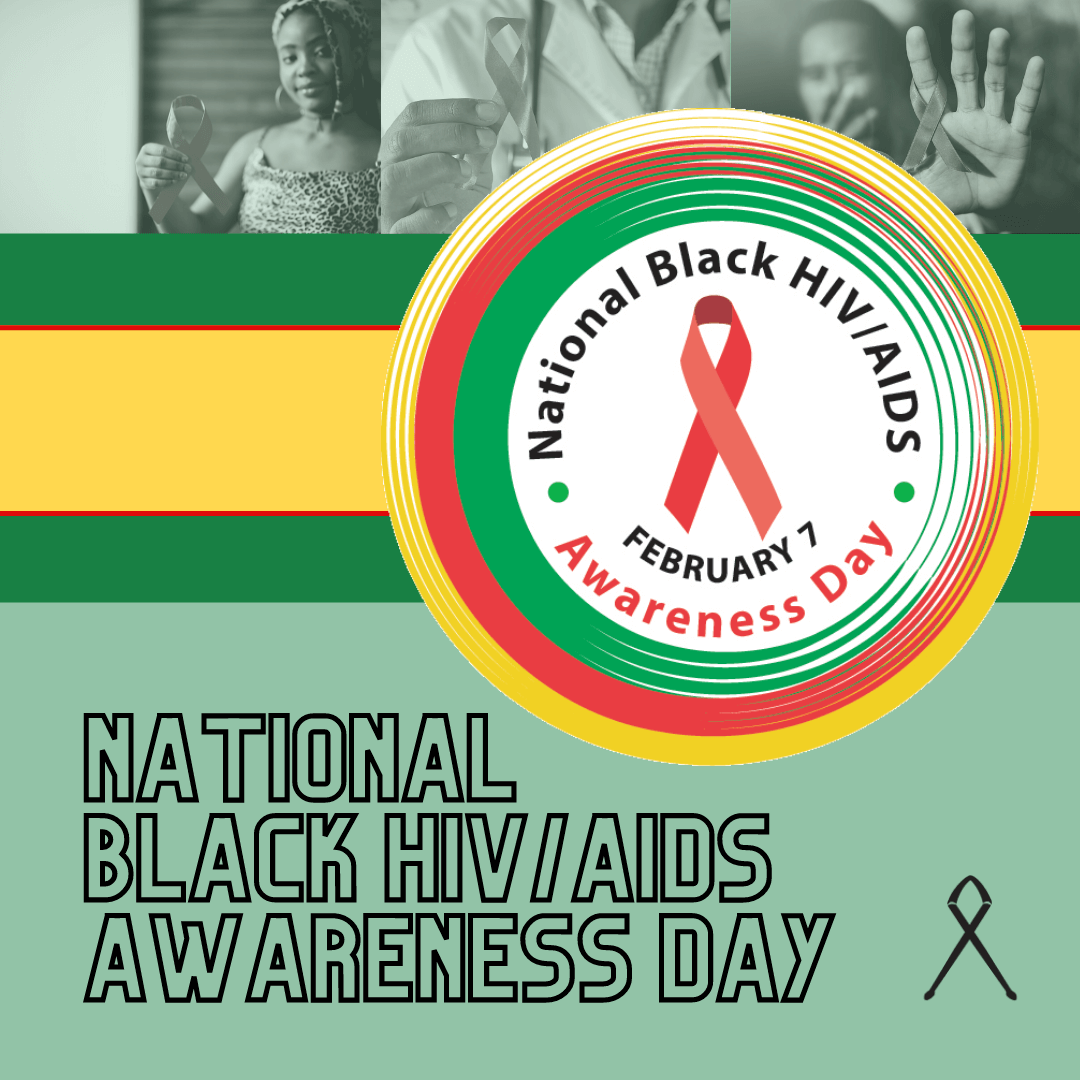
© 2015-Present ThePunishmentChannel.com

Founded in 1999, NBHAAD was a response to the disproportionately high number of HIV/AIDS cases being diagnosed in the African American community, and focuses on promoting HIV testing and treatment, as well as educating people about HIV/AIDS. This year’s theme is “I am My Brother’s and Sister’s Keeper: Fight HIV/AIDS.”
Are you getting the most out of your credit card rewards?
There is no “one size fits all” credit card. With the variety of cards on the market, you have plenty of options to consider.
>
“Now, more than ever, it’s important for African Americans to learn their HIV status & talk about prevention and care options,” said Eugene McCray, director of the Center for Disease Control’s Division of HIV/AIDS Prevention.
Are you getting the most out of your credit card rewards?
There is no “one size fits all” credit card. With the variety of cards on the market, you have plenty of options to consider.
>
“Now, more than ever, it’s important for African Americans to learn their HIV status & talk about prevention and care options,” said Eugene McCray, director of the Center for Disease Control’s Division of HIV/AIDS Prevention.
Since 1981, we have lost millions of lives to the AIDS epidemic. Today, millions more are either at risk to get HIV or are living with HIV. In the last 4 decades, we have made advances in HIV prevention and treatment and now await an HIV vaccine.
It is a scientific fact that being of a certain race does not make you genetically more likely to get HIV. Yet, despite all our gains, systems built upon anti-Blackness have shifted the burden of HIV to Black Americans. It is why fighting racial injustice is intertwined with the fight to end the HIV epidemic among our people.
HIV Awareness Days are:
Entirely community-led-and-managed observances that reflect the voice and the unique ways in which HIV affects different groups
Continual and thoughtful reminders of how far we have come with HIV prevention and treatment, and how it is entirely possible to end the epidemic in our lifetime
Meaningful opportunities for you to get involved individually or choose an HIV Awareness Day to sponsor for a corporate social responsibility initiative
National Women and Girls HIV Awareness Day
March 10, 2022
The Black AIDS Institute and the AT Justice Collaborative Recognize
National Women and Girls HIV Awareness Day
The Black AIDS Institute – a leading voice in educating and mobilizing communities across the country in the fight to end the HIV/AIDS epidemic – and the At Justice Health Collaborative today is urging Black women to commit to prioritizing their own health as much as they have committed to taking care of their families and communities.
According to the Centers for Disease Control, women make up 19 percent of all new HIV diagnoses. The highest number of new diagnoses are among women ages 25 – 44. Disparities in HIV continue as Black women and girls accounted for 57% of the new HIV diagnosis.
National Women and Girls HIV/AIDS Awareness Day is dedicated to bringing awareness to the growing cases among young adult females and address testing, treatment, and the progress in the national goal to end the HIV epidemic by 2030.
BAI has launched the Black Women and PrEP (Pre-Exposure Prophylaxis) Toolkit to advocate for greater use of HIV PrEP – an FDA-approved daily medication that prevents HIV by over 90%. You can learn more about BAI’s campaign here: https://blackaids.org/campaign/black-women-and-prep/
“Twenty-three percent of all people living with HIV are women – with Black women as the majority of this grim statistic. We must take care of ourselves; we must make our health a priority. On this day and every day, we must empower women and girls, especially in communities of color, to have those difficult conversations about knowing your HIV status and seeking treatments and preventions to reduce the spread of HIV among women and girls,” said Grazell Howard, Chair of the Board of BAI.
“We are seeing a surge in the presence of young Black women coming in to receive STI and HIV screenings. We need to create powerful and comfortable ways of inserting PrEP, condoms, and abstinence into conversations among Black women. That’s the only way we will change the tide of STI and HIV rates among Black women. We change the tide by upgrading the conversation,” said Deja Abdul-Haqq, Director of Organizational Development, My Brother’s Keeper.
The Black AIDS Institute and the AT Justice Collaborative Recognize
National Women and Girls HIV Awareness Day
The Black AIDS Institute – a leading voice in educating and mobilizing communities across the country in the fight to end the HIV/AIDS epidemic – and the At Justice Health Collaborative today is urging Black women to commit to prioritizing their own health as much as they have committed to taking care of their families and communities.
According to the Centers for Disease Control, women make up 19 percent of all new HIV diagnoses. The highest number of new diagnoses are among women ages 25 – 44. Disparities in HIV continue as Black women and girls accounted for 57% of the new HIV diagnosis.
National Women and Girls HIV/AIDS Awareness Day is dedicated to bringing awareness to the growing cases among young adult females and address testing, treatment, and the progress in the national goal to end the HIV epidemic by 2030.
BAI has launched the Black Women and PrEP (Pre-Exposure Prophylaxis) Toolkit to advocate for greater use of HIV PrEP – an FDA-approved daily medication that prevents HIV by over 90%. You can learn more about BAI’s campaign here: https://blackaids.org/campaign/black-women-and-prep/
“Twenty-three percent of all people living with HIV are women – with Black women as the majority of this grim statistic. We must take care of ourselves; we must make our health a priority. On this day and every day, we must empower women and girls, especially in communities of color, to have those difficult conversations about knowing your HIV status and seeking treatments and preventions to reduce the spread of HIV among women and girls,” said Grazell Howard, Chair of the Board of BAI.
“We are seeing a surge in the presence of young Black women coming in to receive STI and HIV screenings. We need to create powerful and comfortable ways of inserting PrEP, condoms, and abstinence into conversations among Black women. That’s the only way we will change the tide of STI and HIV rates among Black women. We change the tide by upgrading the conversation,” said Deja Abdul-Haqq, Director of Organizational Development, My Brother’s Keeper.
 It has been a challenging year for the health of our nation, particularly for communities of color. The COVID-19 pandemic is shining a harsh light on health disparities, especially for Black Americans, who experience serious structural barriers to accessing quality, affordable health care, including discrimination and higher rates of poverty. As noted in Amida Care’s recent report A Pandemic + an Epidemic: COVID-19’s Impact on New York’s Plan to End the HIV Epidemic, Black people represent 28% of COVID-related deaths in New York City, although they account for only 22% of the city’s population. Nationwide, Black people are eight times more likely to be diagnosed with HIV and nine times more likely to die of AIDS than the general population.
It has been a challenging year for the health of our nation, particularly for communities of color. The COVID-19 pandemic is shining a harsh light on health disparities, especially for Black Americans, who experience serious structural barriers to accessing quality, affordable health care, including discrimination and higher rates of poverty. As noted in Amida Care’s recent report A Pandemic + an Epidemic: COVID-19’s Impact on New York’s Plan to End the HIV Epidemic, Black people represent 28% of COVID-related deaths in New York City, although they account for only 22% of the city’s population. Nationwide, Black people are eight times more likely to be diagnosed with HIV and nine times more likely to die of AIDS than the general population.Sunday, February 7, is National Black HIV/AIDS Awareness Day, a time to increase awareness, spark conversations, highlight the work being done to reduce new HIV cases in Black communities in the United States, and show support for people living with HIV in these communities.

 “Black women and girls living with and at risk of HIV, face unique challenges that can prevent them from getting needed care and treatment. As a consequence, they often delay entry into care and experience poor health outcomes. It is essential that Black women and girls living with and at risk of HIV are more readily engaged in prevention interventions that produce positive health outcomes.” said Dr. Ivy Turnbull, the Deputy Executive Director of the AIDS Alliance for Women, Infants, Youth, Children and Families and Chair of the National Black Women’s HIV/AIDS Network.
“Black women and girls living with and at risk of HIV, face unique challenges that can prevent them from getting needed care and treatment. As a consequence, they often delay entry into care and experience poor health outcomes. It is essential that Black women and girls living with and at risk of HIV are more readily engaged in prevention interventions that produce positive health outcomes.” said Dr. Ivy Turnbull, the Deputy Executive Director of the AIDS Alliance for Women, Infants, Youth, Children and Families and Chair of the National Black Women’s HIV/AIDS Network.“Our community of African American women are often misrepresented and excluded from conversations About Us and For Us as it relates to decision-making that impacts our overall health and well-being. It is time for us to demand our seats at the table and lift our voices! We are no longer willing to remain silent and be overlooked. The time is now to Talk About and Be About It. This is the appointed time for change” said Faye Marshall, COO of the Quality Comprehensive Health Center, Powerhouse Project in Charlotte.